In Shan State, the aftermath of inter-Ethnic Armed Organization (EAO) conflicts, which began escalating in 2016 in Northern Shan State, has significantly affected trust and collaboration among the Shan, Ta-áng, and Kachin communities. The once strong bond, formed through shared experiences and mutual understanding, seems to be diminishing. This is evident in everyday situations, where friends from different ethnic backgrounds can no longer sit together in tea shops or noodle shops, and stories of Shan people missing the memories and the joy of visiting their Taáng friends and vice versa. This article recognizes the importance of unity within each ethnic group, using the Shan case as an example, while also advocating for the promotion of harmonious relationships between different ethnic groups in the region. Moreover, it emphasizes the urgent need for peaceful coexistence to rebuild bridges of understanding and cooperation among all who call Shan State their home.
.
The Meaning of Social Cohesion:
Social cohesion is the fundamental bond that unites individuals within a society, especially in communities characterized by diverse ethnicities, religions, or other differentiating factors. It encompasses crucial elements such as trust, collaboration, and a shared sense of identity, fostering harmonious interactions among people. The presence of social cohesion is vital for the establishment of democratic, developed, and peaceful societies or nations.
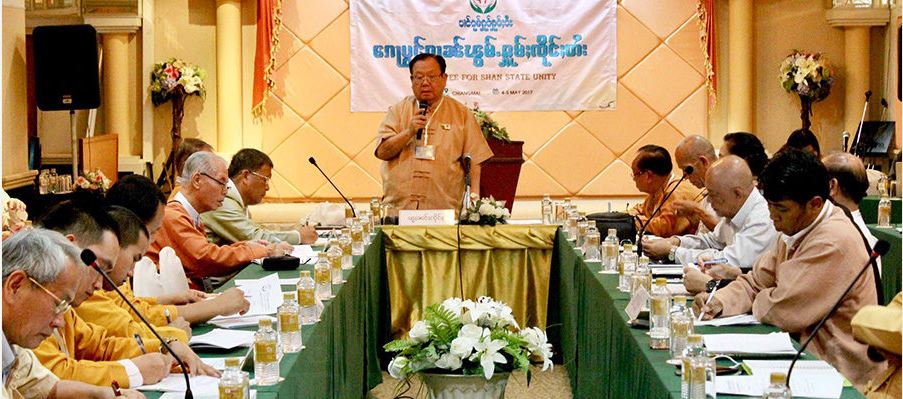
In the context of Shan State, where our aspiration lies in becoming a federal unit itself within the larger federal, social cohesion and peaceful coexistence assume an essential role in the pursuit of genuine federalism. This principle is shared by Myanmar’s ethnic nationalities and finds prominence in numerous publications, including the United Nationalities League for Democracy (UNLD)’s collection of books titled “Peaceful Coexistence: Toward Federal Union of Burma”. Moreover, this very principle of peaceful coexistence between Shan State’s ethnic groups and among citizens across the union is the foundational pillar for establishing the aspired genuine federal democratic union, as articulated in the five-point statement released by the Committee for Shan State Unity (CSSU) in January and February 2022.
Understanding the dynamics between Social Cohesion and conflict situation:
The Social Dynamic theory proposes that in times of crisis or violence, individuals tend to show higher levels of trust, collaboration, and participation within their own social group or in-group, fostering increased cohesion. However, this heightened trust and altruistic behavior may primarily stay confined within the boundaries of the in-group, with potential to weaken trust and cooperation towards individuals from out-groups.
This theory holds significant relevance to the situation in Shan State, where diverse ethnic groups coexist. While current complex conflict scenarios including inter-EAO conflicts may indeed strengthen the urge for unity amongst different ethnic groups including the Shan. However, it is essential to strike a delicate balance and not let the pursuit of internal unity hinder the promotion of harmonious relationships with other ethnic groups.
Some rationales behind the Call for Unity amongst Shan:
In recent years, the call for unity among fellow Shan has grown louder, driven by various factors such as inter-Ethnic Armed Organizations conflict, including those between two Shan EAOs, which have created divisions within the Shan population, the shifting political landscape, and the rise of ultra-nationalism among different groups. Unity is not only a desirable goal but also a necessary strategy to safeguard Shan’s national interests in the face of a rapidly evolving political landscape. Thus, there is a perception that for the Shan to meaningfully contribute to the larger discussion on the creation of a future federal union, their ability to work together as a cohesive force is essential. It is through collective strength that the Shan would be able to assert national interests with a unified voice, ensuring that the unique concerns and aspirations of Shan are heard, understood, and respected.
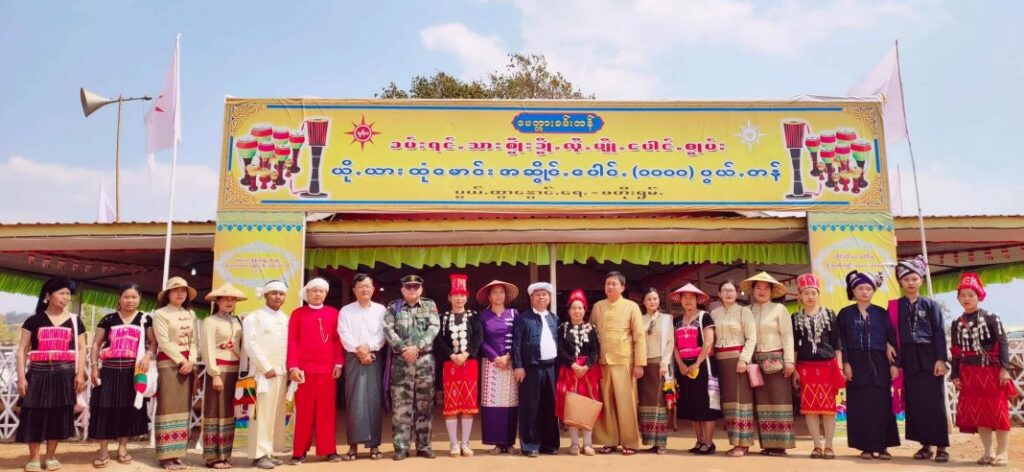
Risk of Exclusive Nationalism:
The significance of unity in safeguarding the identity and political aspirations of each ethnic nationality cannot be overstated, but we must be cautious not to embrace exclusive nationalism that alienates others. Exclusive nationalism has the potential to erect barriers and hinder our journey towards a peaceful society, a vision cherished by all of our diverse nationalities. Stories of people unable to interact freely due to ethnic boundaries is an alarming danger, and it reminds us of the importance of rebuilding connections and fostering an atmosphere of trust and collaboration. Shan State’s history bears witness to a tradition of peaceful coexistence and federalism dating back to 1922, when the Federated Shan State was established, with diverse principalities governed by Shan, Ta-ang, Pa-O, Wa princes, and chiefs.
The current tensions amongst us stem from successive military regimes imposing unitary systems, neglecting federal systems that ensure self-determination and equality. Divisive strategies and militarization have further compounded the challenges we face. Moreover, the historic Panglong Agreement stands as a shining example of true unity, emphasizing the value of diversity, inclusiveness, self-determination, coexistence, and equality as fundamental principles to be upheld. Therefore, as we pursue unity, we must not sacrifice cohesion with other communities. Embracing exclusive nationalism will only distance us from the path towards a peaceful coexistence and harmonious Shan State and society.
Way Forward:
The path to a harmonious Shan State lies in finding a delicate balance between fostering Shan unity and preserving social cohesion among different ethnic groups. It is essential to be mindful of potential unintended consequences and avoid an exclusive focus on Shan or in-group unity that may weaken ties with other ethnic groups in the region. Instead, calls for unity should embrace inclusivity and peaceful coexistence, following the aspirations of our political bodies and ancestors.
To move forward, we must chart a new path guided by peaceful coexistence and an inclusive identity. Overcoming fear and distrust is vital for achieving a peaceful and harmonious society in Shan State. We must actively encourage open dialogue, mutual understanding, cooperation, and consensus-building. Together, we can rebuild the bonds of friendship and trust, creating an atmosphere where people from all ethnicities can freely interact. Shan State, with its embrace of diverse identities, will serve as a shining example of unity in diversity, leading the way towards a more democratic, developed, and peaceful society. At the very least, our aspiration is that friends from different ethnic groups can continue to sit together at the tea and noodle shop, interacting freely in the market, fostering a sense of togetherness.





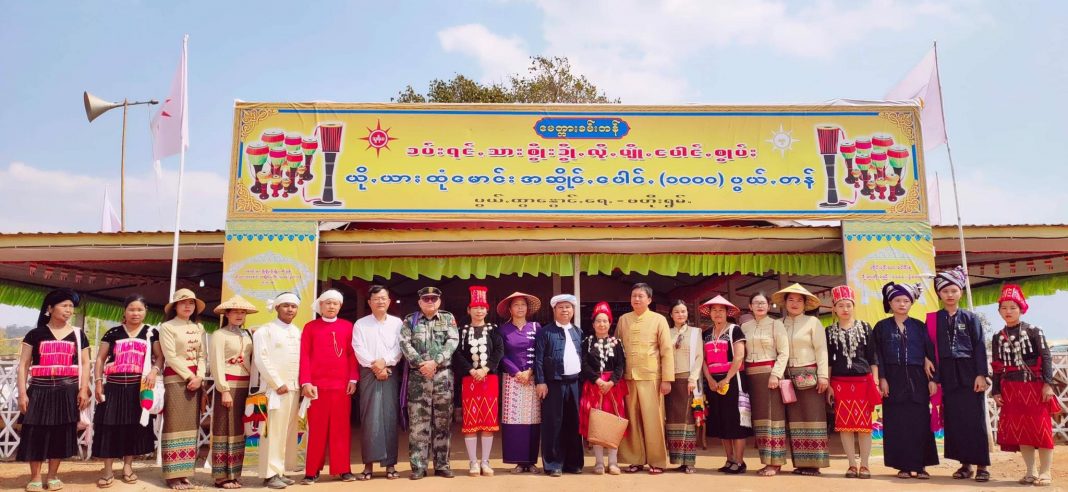
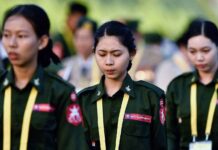
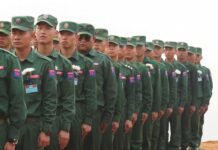
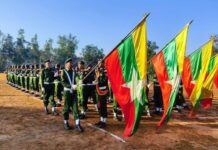








Leave a Comments